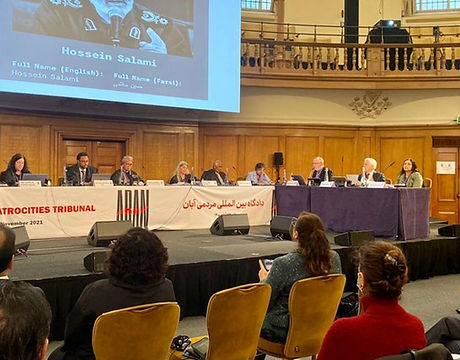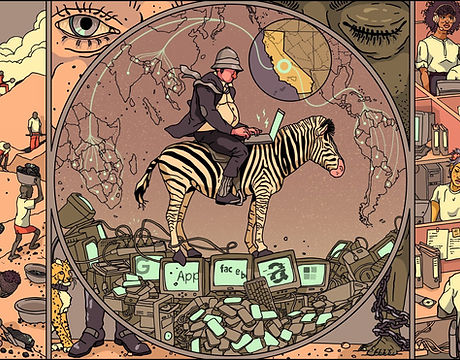Our Publications
Bridging the gap between research-driven students and the world of academic publishing.
Volume 5
Years 2024/2025
FIRST ISSUE
For the inaugural issue of our fifth volume, we welcome a new leadership team and a brand new set of writers continuing the rich discussions that arise from student contributions to social sciences scholarship. From post-colonial narratives in Israel's LGBTQ+ Birthright trips, to China's rise to U.S. Hegemony, to the gendered culture of cricket in Pakistan, this is an excellent start to our fifth year of academic journal work!

Volume 4
Years 2023/2024
THIRD ISSUE
For our third issue, we explore issues surrounding citizenship and its relationship with enfranchisement, the efficacy and use of community health initiatives as per the Black Panther Party, and the intricacies of colonialism and law.

SECOND ISSUE
For our second issue, we explore the depictions of motherhood in capitalist society, masculinities in Chinese policy, and the principles of decoloniality and reflexivity in qualitative health research. With an afterword written by our Operations Officer, Takashi, we are proud to announce the publication of the second issue of our fourth volume.

FIRST ISSUE
Bristol Social Science Review are dedicated to the understanding of the interconnectedness of social life. Indeed, we as living beings are subject to a multitude of cultural, psychological, and political forces that defined the contours of our beliefs. For our first article of the fourth volume, we explore the inextricable relationship that constitutional rights have with the sociology of religion, media depictions, and political interests. Alongside our new Editor-in-Chief, Anya, and Opreations Officer, Takashi, the BSSR Editorial Board are proud to announce the publication of the first issue of our fourth volume.

Volume 3
Years 2022/2023
FOURTH ISSUE
© CNN
THIRD ISSUE
We are returning from a restorative bank holiday weekend with yet another issue under our belt! This issue features contributions from Japheth E.A. Monzon and Carla Forster that (unintentionally, or perhaps serendipitously) lined up to produce a broader focus on the role of values in the social sciences. Please take a look at Volume Three, Issue Three below!

SECOND ISSUE
We are so pleased to be introducing the Second Issue of Volume Three of the Bristol Social Sciences Review, featuring three outstanding original pieces of work by Bristol students and graduates! Firstly, we have: '"Don't go to university for the f****** sake of it”: problematising credentialism in the returns of higher education discourse' by Ali Karro-Strokova; 'Faint Traces of Sapphic Desire: Islamic Feminism and the Lesbian Narrative' by A. Saadat; and, finally, 'Ukraine’s policy shift on homosexual rights in the wake of Russian invasion: Europeanisation or social change?' by Jakub Jezierski

© HistoryIsGayPodcast
FIRST ISSUE
What an absolute pleasure it is to be able to present the First Issue of our Third Volume, showcasing the incredible talent of students at the University of Bristol: 'How will a changing economic climate impact Buy-Now, Pay-Later Firms in western economies?' by Tomi Okusanya; 'Economic stability in times of the Russian-Ukrainian war: European policies encompassing all socio-economic groups' by Zofia Borowczyk; 'Finland’s New Parental Leave Policies: A Vital Step Towards Gender Equality' by Kate Begley; and 'The Modern Gender Voting Gap: Why are Gender Imbalances in Party Sympathies Increasing in Sweden?' by Henrietta Skareng.

© Cred Ability
The idea that norms, traditions, and representations are so normalised that they go unnoticed is a quite worrying phenomena. Our writers, in this issue, are tied together – loosely – through the concept of ubiquity: the ubiquity of representations that dehumanise the migrant, those looking for a safe home; the ubiquity of traditions and social attitudes that punish women for menstruation; and the ubiquity of media representations of war & conflict, that which seldom acknowledges the potential for ecological growth through renewable energy. We are proud to announce the fourth issue of our third volume.

Volume 2
Years 2021/2022
THIRD ISSUE
We are back for our third issue of Volume 2! We are proud to publish our Summer 2022 issue with three interesting articles:' What can transitional justice mechanisms achieve? Lessons from the Aban Tribunal' by Sidhivi Sharma; 'Understanding the Cost-of-Living Crisis for Households' by Tomi Okusanya; and 'The Demise of Democracy: Diminishing Participation and Increasingly Shallow Foundations' by Henry Macpherson.

© Iran International
SECOND ISSUE
This Spring Issue brings three fresh articles to the table of Social Sciences. We begin with Hannah Drury's 'Neoliberalism, Social Reproduction, and Value in Global Care Chains', followed by Zofia Borowczyk's piece on the 'Lack of Free Media in Poland: A Core Aspect of Democracy', with Robynne Grant's 'Beyond Impact: Assessing the Effectiveness of Sanctions Against Russia' finishing off the second issue.

© European Parliament
FIRST ISSUE
We begin the second volume of the Bristol Social Science Review with four articles taken from a wide array of topics. Sidhivi Sharma presents their article about the lessons one could take from using a critical approach towards peacebuilding, followed by Robynne Grant's article on the fallacy of female labour force participation, with Hannah Drury beautifully writing about 'colonial unknowing' and the perpetuation of global inequality. Finally, Adam Landau continues BSSR's tradition of investigating political polarisation by proposing a behavioural analysis of its roots.

©The World Economic Forum
Volume 1
Years 2020/2021
SEVENTH ISSUE
The research analysts this cycle have gone the extra mile to ensure their research articles are published on time and of a high quality, all during their exam season. Paying due respect to the dedication placed in these pieces of work, the Bristol Social Science Review is proud to present the last issue of the first volume! One of the many articles is a poignant assessment of the intergenerational injustice at the heart of the UK's Housing Crisis, by Rosie Neville. This issue is beautifully ended by Finlay Perry in their analysis of the Psychology of Leadership.
SIXTH ISSUE
The sixth issue of the Bristol Social Science Review is marked by its focus on the critique of overarching power structures. This issue begins with an incredible article by Kate Begley who employs Nancy Fraser's Theory of Social Reproduction in the sphere of Elderly Care. Similarly skilled in their analysis power, Harvey Seville discusses the 'transaction' of E-Waste between the Global North and the Global South. In the same vein of discussion, Rebecca Sykes critiques the Neoliberal Agenda pushing the rising Ethiopian Garment Sector.

© FashionUnited
FIFTH ISSUE
The Bristol Social Science Review is proud to introduce our fifth issue – with new and improved features! Tsoukis and Templeman begin this issue with two articles on the COVID-19 Pandemic. They are then followed by Finlay's astute writing on 'Reason Problematised...", a must-read for burgeoning social scientists critical of Positivist paradigms. Finally, our amazing Operations Team ends this issue with missive.

© Thought Co
FOURTH ISSUE
Issue Four of the Bristol Social Science Review's first volume begins by incisively analysing the potential roadblocks to President Joe Biden's legislative agenda. Following that, Luke Foster investigates the concept of a 'United'-Kingdom, particularly in light of the polarised public mood of today. Elsa Bauer ends this spectacular issue with an assessment of the impacts of the Myanmar Coup on China's geo-political position.

© The Guardian
THIRD ISSUE
The years of 2020/21 were markedly eventful, yet tumultuous. From global pandemics to political crises, the Bristol Social Science Review looks into: the polarising effects of prejudice that cascaded into the Capitol Riots; the politico-economic dimensions of the COVID-19 Pandemic; and the relationship between Facebook and Antitrust Law.

© BBC
SECOND ISSUE
Introducing the Second Issue of the Bristol Social Science Review! From Digital Colonialism, to India's Assam Immigration Crisis, to President Joseph Biden, this issue hosts a wealth of information for social scientists looking to learn more about the intricacies of global power relations.

© Transnational Institute
FIRST ISSUE
The Issue that started it all! The birth of the Bristol Social Science Review begins with seven powerful pieces of work from a diverse pool of talented writers. From extrajudicial killings in the Chemical Age, to Symbols of Nationalism & Identity Politics, to the Power of Disinformation in Filipino Facebook, BSSR Volume 1 Issue 1 presents the very best works of Bristol's young social scientists.

© Adobo Magazine
© Adobo Magazine




